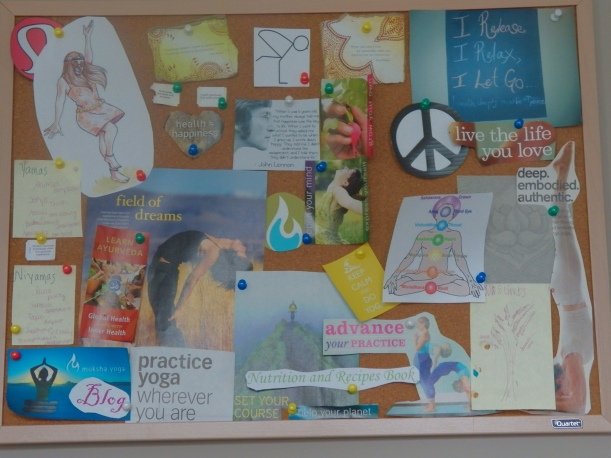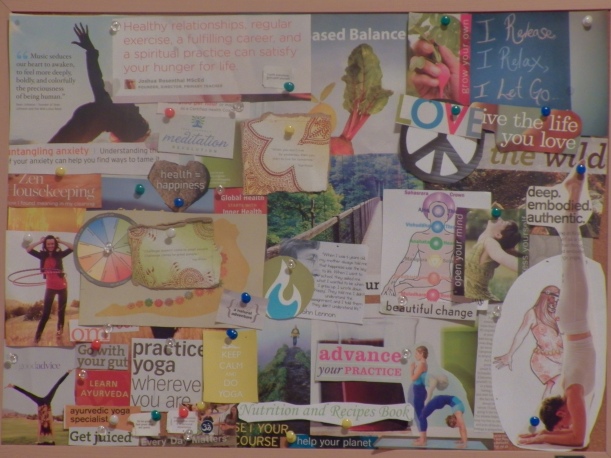A vision board is very simple to make and can be made for very little expense. It can be a fun project to do as part of your self-care on evening, or could even be a family night activity or part of a date night. If you run a business, this could be part of your business strategy sessions and planning for the year ahead.
How to create a vision board:
- Grab some magazine or newspapers or flyers
- Print out images or quotes that are meaningful to you
- Find photos, pictures or even cards around your home
- Paste or thumbtack them into your board
- Place your board somewhere you see every day. If it is focused on your career, place it in your office. If it is focused on personal development, place it somewhere you work or attend to often. If it is relationship focused, or perhaps you made a board with your partner or family, hang it in your room or family space.
- Each year, look back at your board and swap out things that aren’t meaningful or you have moved beyond with things for the new year.
That really is all there is to it. Once you create your board you are ready for it to work its “magic” and help you reach your intentions throughout the year.
Have you ever created a vision board before? If so, leave your tips in the comments below or in the FB group. If you want even more useful tools to help combat stress and burn out, make sure to sign up below for the SLP Toolbox.
You can also check out more on
goal setting here. If you’d like to dive deeper in setting your goals and decreasing your overall stress, I’d love to work with you this year. You can email me any questions you might have to jessi@jessiandricks.com or schedule a phone/skype
chat here.
Much Love,


















